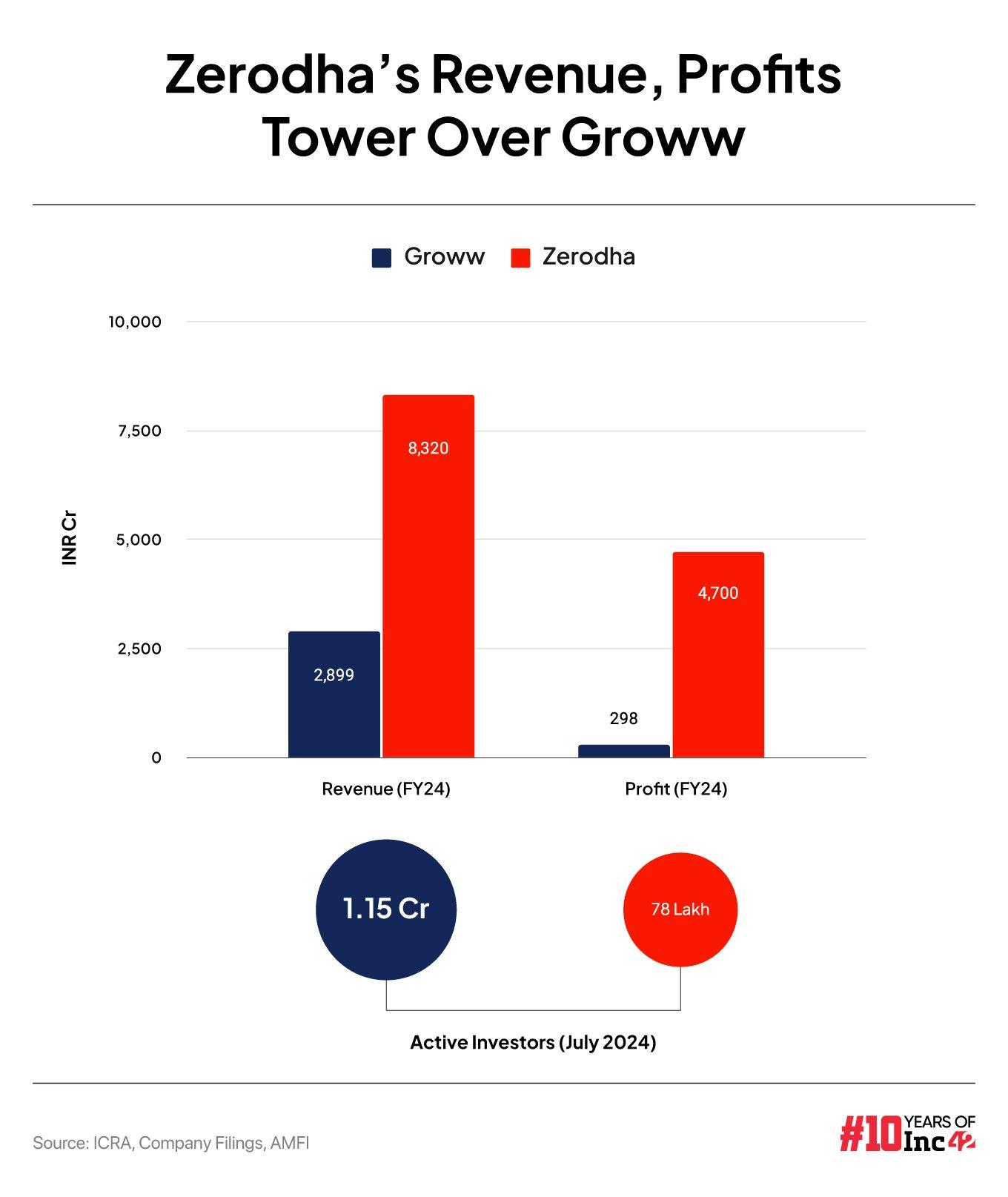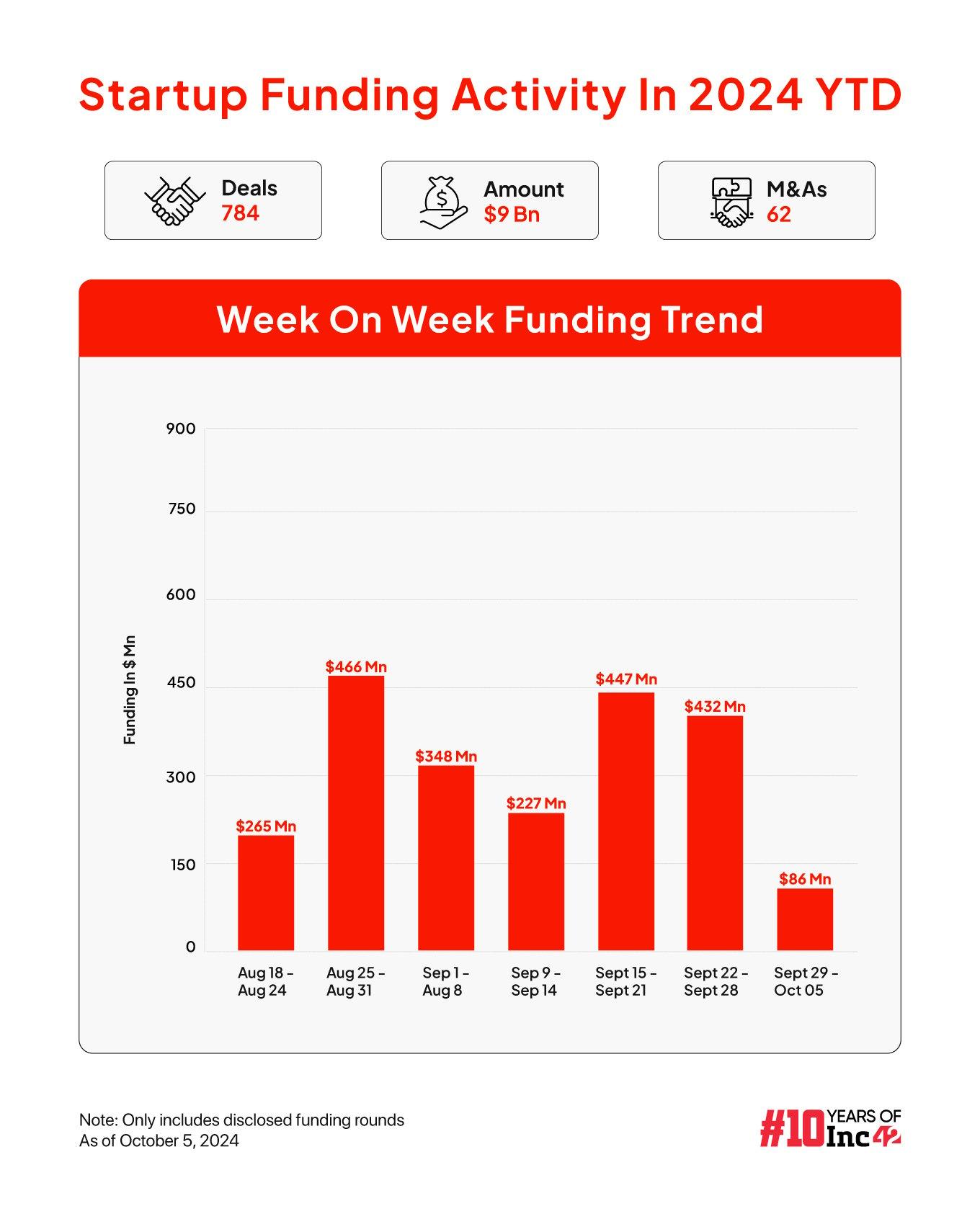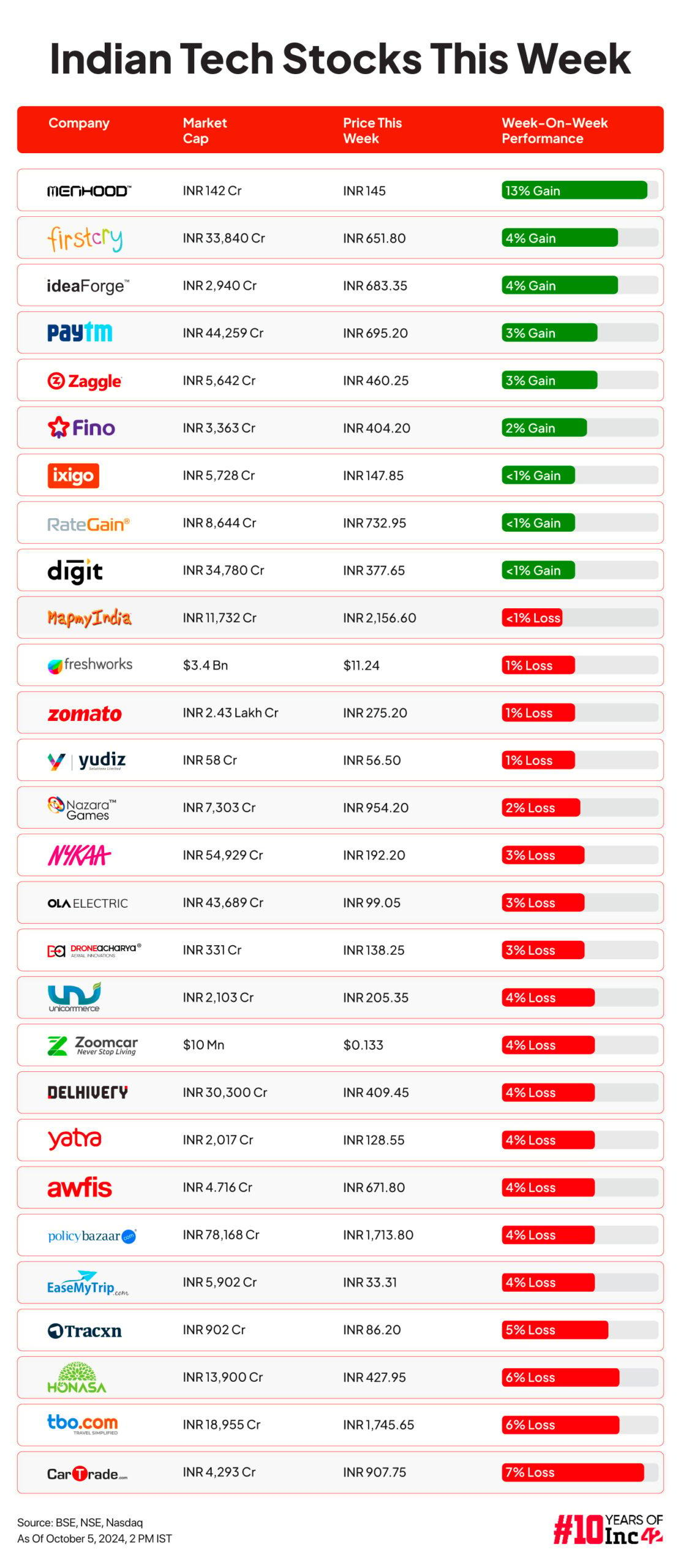Zerodha, Groww’s Revenue Conundrum

One often gets asked: where are the profitable startups? Three recent examples come to mind, all coincidentally in the same segment and from Bengaluru. We are talking about Zerodha, Groww and Dhan.
In fact, the ‘success rate’ in investment tech for profitability is rather high compared to other segments in the broader fintech sector — even Upstox reached profitability in FY23. And this is perhaps why many fear that SEBI’s changes this year might disrupt this profitability in some measure.
This past week, Zerodha revealed that SEBI’s new derivatives framework will definitely have an impact on futures and options (F&O) volumes. For SEBI, these rules are critical to protect investors from becoming too enthralled by the F&O frenzy, but will the changes set Zerodha, Groww, Dhan, Angel One and other discount brokers back in terms of profitability as many fear?
Let’s try to answer that after a look at these top stories from our newsroom this week:
- End Of BharatPe-Ashneer Grover Saga? After two years of bad blood, mudslinging and court battles, BharatPe and Ashneer Grover have come to a settlement, but its timing has raised quite a few questions. Was it a settlement or a compromise?
- The Valuation Game: Prominent investors are now saying that the age of high valuations and unicorns is over for the Indian startup ecosystem and now the focus is shifting to value over valuation. What explains this shift?
- The Festive Season Battle: Quick commerce has the edge when it comes to online grocery, but are the likes of Blinkit, Zepto and others close to disrupting Amazon India, Flipkart and Meesho’s festive season expectations? Here’s a breakdown
Regulatory Hit For Zerodha, Groww & Co
Since July this year, discount brokers and investment tech platforms have had quite a few things to worry about, with more major changes on the way
It started when SEBI decided to bar market infrastructure institutions from offering discounts based on trading volumes of members, effectively hitting the business model of discount broking platforms such as Zerodha, Groww, Upstox, among others. The move was largely seen as a way to curb the F&O trading frenzy.
The second setback came via the Union Budget, which hiked capital gains tax and securities transaction tax. Common sense dictates that retail investors are more likely to think twice about how much they now want to invest.
The most recent disruption has come from SEBI’s new derivatives framework, which will come into effect from November. These changes include weekly expiry of only one index derivative per exchange, upfront collection of option premiums from buyers, increasing the minimum contract size for index derivatives to INR 15 Lakh, among others.
Together, these changes have made it slightly more difficult for platforms to predict investor and trader activity, made it more complicated for them to bring in new users and have forced them to look at other revenue streams to make up for any potential dip in profits.
Zerodha, Groww and other investment tech platforms that have scaled up massively on the back of the F&O boom of the past 18 months will feel the heat.
Into The F&O Frenzy
As per SEBI data as of May 2024, equity derivatives and F&O volumes on BSE and NSE saw a whopping 71% YoY growth to INR 9,504 Lakh Cr.
Further, according to data by global trade monitor FIA, more than 36.8 Bn equity index options were traded on these two exchanges between April and June 2024. This is 100% YoY growth and represents two-thirds of all F&O trades on every exchange around the world. In other words, India is quite mad about F&O.
This growth has coincided with investors flocking to discount broking platforms. Groww now boasts over 11 Mn active investors as of May 2024, with Zerodha trailing at 7.8 Mn as of August 2024. However, these leading platforms see the impact from SEBI’s new rules differently.
For instance, in the past week, Zerodha CEO Kamath said that the platform will not change its zero brokerage model in structure even as most industry observers expected the opposite. And then a few days later, Zerodha put on a brave face in the light of yet another potential complication with SEBI’s new derivatives framework, saying it would affect 30% of its futures and options (F&O) orders.
To put this in context, Zerodha reported INR 8,320 Cr or about $1 Bn in revenue for FY24. This is undoubtedly a major milestone for the company, but now other industry observers believe revenue for the current year (FY25) will drop by 30%-50% for Zerodha.
Groww on the other hand has distanced itself from F&O as a category. In the past, the company has said that its growth and revenue generation is not heavily dependent on F&O trading. In a recent interaction at a media conference, cofounder and CEO Lalit Keshre also said that Groww has a different outlook on investment tech.
“Groww is not an F&O company, but a financial services company. Hardly 15% of our customers do trading. Trading is a zero-sum game. Investing is a win-win game. We encourage responsible trading,” Keshre was quoted as saying.
Kamath also claimed that the real impact of SEBI’s changes in the F&O framework will only become clear after November this year when the rules come into effect. And that could be a big blow to the profitability streak for Groww, Zerodha and others.
Speaking of profits, as we reported this week, Groww is likely to see a 4X YoY jump in its net profit to INR 297.8 Cr in FY24. Among startups, Groww is the closest to Zerodha, which had a sizable lead over the former with INR 4,700 Cr ($562 Mn) in profit for FY24. This is despite Groww having significantly more active investors.

As for the other profitable players, Angel One, the discount broking arm of full service firm Angel Broking, reported a net profit of INR 1,126 Cr, while Dhan finished FY24 with a healthy profit of INR 177 Cr after just about three years of operations.
Dhan expects the gross revenue impact from SEBI’s changes to be around the 25%-30% mark, according to a report by The Arc, which would certainly eat into those profits.
Diversification Is The Game
It’s no surprise then that most players are looking to diversify their revenue streams. The most clear example is of Groww, which has seen its lending business grow steadily in the past year.
The Bengaluru-based unicorn has also added UPI payments and an asset management company to make the most of its lead in terms of active investors.
Groww’s NBFC arm Groww Creditserv’s loan book stood at INR 965.44 Cr as on June 30, 2024, growing 32% from INR 731.1 Cr in the previous quarter. Personal loans accounted for 98% of the total loan book, and consumer durable loans accounted for the rest. However, Groww Creditserv is not yet a profitable entity. It posted a loss of INR 24.1 Cr in FY24, almost 10X higher than its loss in FY23.
Some such as Upstox are leveraging scale to launch insurance distribution, but this is not exactly a high margin play.
Then there’s margin trade funding or MTF – where brokers lend money to traders to earn interest income while keeping the financed shares as collateral. This is usually an area where banks have had a strong presence. However, Groww has made an entry into this space and Zerodha is also contemplating a launch, as per sources.
Among discount brokers, Mirae Asset-backed Mstock has cracked the MTF formula to some extent and has built a loan book of around INR 2,000 Cr, as per ET, while Angel One also has a significant interest in MTF.
Industry insiders believe that MTF can be a lucrative vertical for discount brokers because the primary target audience is high-net-worth individuals, which naturally have larger propensity to invest. It could be a way for Groww, Zerodha and others to nullify the revenue impact from SEBI’s strict new framework for F&O.
Despite the upside, making the most of these new verticals will be a distraction for Zerodha, Groww, and others, who have become used to consistent revenue generation and profitability.
But it’s also an opportunity for Groww to turn the tables on Zerodha in terms of revenue, or for other players to emerge as strong rivals. As always, India’s regulators have added a fresh new twist to the fintech game.
Sunday Roundup: Tech Stocks, Startup Funding & More

- After a drought of almost two years, the Indian startup ecosystem is showing signs of recovery, with startup funding growing by 2X YoY to $3.4 Bn in Q3 2024
- VC giant Peak XV Partners has pared the size of its $2.85 Bn fund by 16% or $465 Mn, and restructured the carried interest and management fees for its LPs across various stages
- Ahmedabad-based coworking space provider DevX is looking to tap the IPO boom and has filed its DRHP for a fresh-issue-only public offering

- Bullish about its IPO, Swiggy will now look to raise a total of $1.4 Bn through the public issue, up from previously planned $1.25 Bn, after getting the shareholder nod for the increase
- Ola Electric slipped below the INR 100 mark in the week, as concerns of profitability and drop in EV market share linger on the stock
The post Zerodha, Groww’s Revenue Conundrum appeared first on Inc42 Media.
No comments